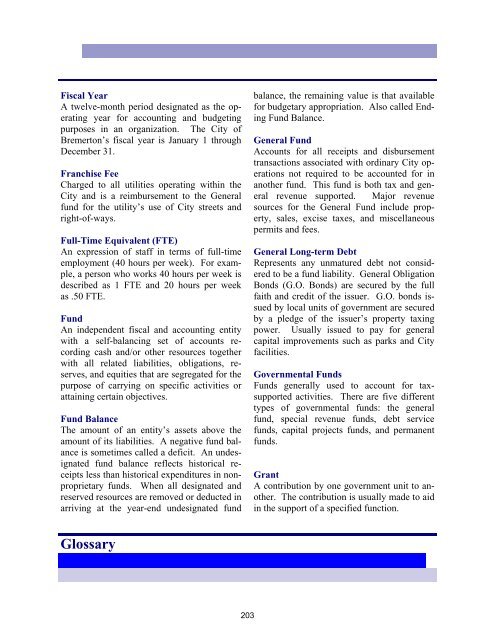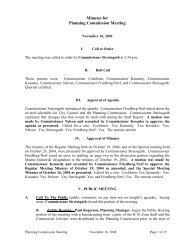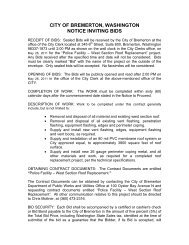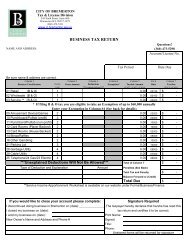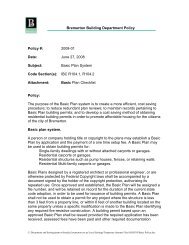2013 Annual Budget - City of Bremerton
2013 Annual Budget - City of Bremerton
2013 Annual Budget - City of Bremerton
Create successful ePaper yourself
Turn your PDF publications into a flip-book with our unique Google optimized e-Paper software.
Fiscal Year<br />
A twelve-month period designated as the operating<br />
year for accounting and budgeting<br />
purposes in an organization. The <strong>City</strong> <strong>of</strong><br />
<strong>Bremerton</strong>’s fiscal year is January 1 through<br />
December 31.<br />
Franchise Fee<br />
Charged to all utilities operating within the<br />
<strong>City</strong> and is a reimbursement to the General<br />
fund for the utility’s use <strong>of</strong> <strong>City</strong> streets and<br />
right-<strong>of</strong>-ways.<br />
Full-Time Equivalent (FTE)<br />
An expression <strong>of</strong> staff in terms <strong>of</strong> full-time<br />
employment (40 hours per week). For example,<br />
a person who works 40 hours per week is<br />
described as 1 FTE and 20 hours per week<br />
as .50 FTE.<br />
Fund<br />
An independent fiscal and accounting entity<br />
with a self-balancing set <strong>of</strong> accounts recording<br />
cash and/or other resources together<br />
with all related liabilities, obligations, reserves,<br />
and equities that are segregated for the<br />
purpose <strong>of</strong> carrying on specific activities or<br />
attaining certain objectives.<br />
Fund Balance<br />
The amount <strong>of</strong> an entity’s assets above the<br />
amount <strong>of</strong> its liabilities. A negative fund balance<br />
is sometimes called a deficit. An undesignated<br />
fund balance reflects historical receipts<br />
less than historical expenditures in nonproprietary<br />
funds. When all designated and<br />
reserved resources are removed or deducted in<br />
arriving at the year-end undesignated fund<br />
balance, the remaining value is that available<br />
for budgetary appropriation. Also called Ending<br />
Fund Balance.<br />
General Fund<br />
Accounts for all receipts and disbursement<br />
transactions associated with ordinary <strong>City</strong> operations<br />
not required to be accounted for in<br />
another fund. This fund is both tax and general<br />
revenue supported. Major revenue<br />
sources for the General Fund include property,<br />
sales, excise taxes, and miscellaneous<br />
permits and fees.<br />
General Long-term Debt<br />
Represents any unmatured debt not considered<br />
to be a fund liability. General Obligation<br />
Bonds (G.O. Bonds) are secured by the full<br />
faith and credit <strong>of</strong> the issuer. G.O. bonds issued<br />
by local units <strong>of</strong> government are secured<br />
by a pledge <strong>of</strong> the issuer’s property taxing<br />
power. Usually issued to pay for general<br />
capital improvements such as parks and <strong>City</strong><br />
facilities.<br />
Governmental Funds<br />
Funds generally used to account for taxsupported<br />
activities. There are five different<br />
types <strong>of</strong> governmental funds: the general<br />
fund, special revenue funds, debt service<br />
funds, capital projects funds, and permanent<br />
funds.<br />
Grant<br />
A contribution by one government unit to another.<br />
The contribution is usually made to aid<br />
in the support <strong>of</strong> a specified function.<br />
Glossary<br />
203


